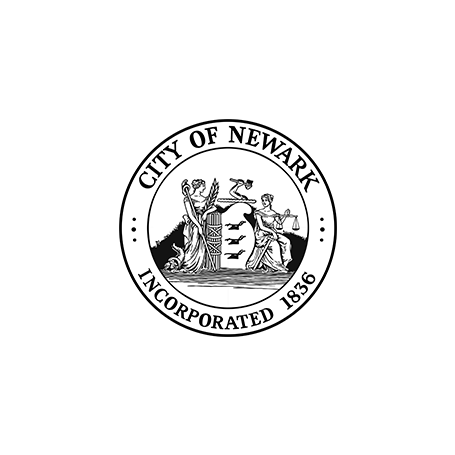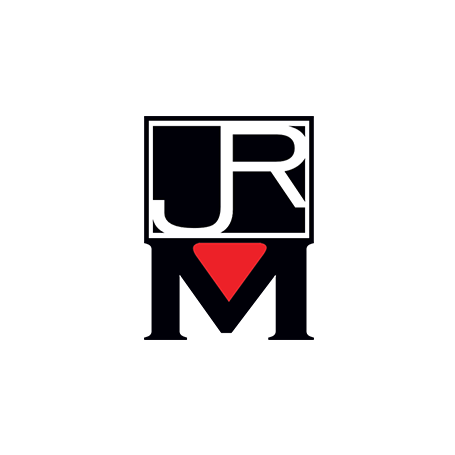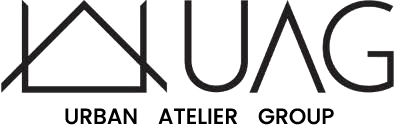Call us at +1 (917)-745-6877 for more info or click here
SkillSignal is proud to present our “Super’s Spotlight” series designed to showcase all of the brilliant minds we work with.
Enter your email here:
I probably would have told myself to go to a state school, instead of a private school, study construction management, get in the industry sooner. It’s always really tricky for young kids because you don't know what you want to do and how can you know what type of work you want to do when all you've ever done is gone to high school. It's a difficult path to try and figure out. I love what I do now. I think my only advice would have been to try and get myself involved in a little bit sooner.
It's difficult. The whole point of technology really should be to make things easier. If you have a product that is supposed to be offering a solution, and it's more work than what the traditional way of doing it, probably not ready to be rolled out. If it's cutting down the amount of time that somebody had to do on that project by 25% or 50%, it should be able to sell itself. Now there's always a learning curve to it. I'll tell you, having to go chase down subcontractors, make them fill out safety documentation and job training can take a lot of time. For example, with a safety program that could offload some of that, like I said before, time is one of our biggest issues, time management, with running the project. Anything I can do to save myself some time over here so I can focus on solving these job issues is better for everyone, and it takes pressure off of what I do. People that are having more of a difficult time adopting these programs, the time savings and hopefully it's an easy to understand interface, is probably the best way to get them to opt in and start using things like that.
It's put more pressure because there's potential safety concerns every single day, where people can be coming on the job sick and getting other people sick. As opposed to, you may have six months or a year before any type of job site accident happens. It really puts a lot of pressure to keep up with documentation, be very clear with training and protocols with the guys there. With COVID, we're trying to keep that distance, so we started using things such as QR codes and different apps to try and make sure that people are able to follow the protocols but also keep a distance and limit how much close interaction that we have.
I would say two big items: the schedule, getting a schedule put together, getting your subcontractors' inputs, getting them to agree to the schedule, letting them bring up any concerns they have with it. And then, once everybody's on board with the schedule enforcing it, once you have agreed to it, you have to make sure that they're meeting it, track it as it as they're falling behind.
The second part I would say is, and this has been invaluable to me, listening to what your subcontractors have to say. There's a lot of fluff, misdirection, a lot of hot air, but one of the key things is learning to sort through all of that and find the gems of truth that subcontractors will try and tell you. The foreman, especially, really they have nothing to lose a lot of the time. If the foreman is going to go out of his way to come and tell me something or warn me about something, that's a good sign that you need to pay attention to it and really focus on what he's telling you because it can save you, your client, your own reputation a lot of pain.
When you're identifying potential issues and coming up with solutions to them weeks ahead of time and giving yourself that room rather than at the last second and having to cancel or stop parts of the job because of it really makes a huge difference in having a smooth landing. They know what to watch out for. They've dealt with these issues a hundred times.
A big part of it is when you show them that you respect them and their opinion, and even if you don't always, you're not always going to follow their advice, or sometimes their concern is something that you maybe already know about and the way the project's set up, there's nothing you can do about it. But just the fact that you are listening to them and you appreciate their advice, I think they kind of got your back on on the project. That's really been invaluable to me, and I've tried to use it on every project that I can.
I would probably go with the Brooklyn Bridge. At the time, it was considered the Eighth Wonder of the World. It was the tallest structure in New York City at the time once it was completed. It changed life forever, for better, as far as an infrastructure project goes, for the people that it served. I mean, we can still cross it today. It was a complete engineering marvel. It not only took like incredible planning, that type of structure had never been built, people didn't even think it could be built, took a lot of bravery on the part of the design team to be able to put that thing together. And then just the political maneuvering cost a lot of money. Sadly, it cost a lot of lives, so it was a very difficult, challenging project to build as well. Having been able to be a part of that would have been pretty amazing.
Very likely I would have tried to maybe stick with computer programming. I like the programming aspect of it, creative aspect of it. I enjoy having to think through algorithmically, solving how to translate an idea into a program. The only thing was I've always just been terrible at the more advanced math, so I'm not sure ever would have completed the math minor work required. You know, being able to turn something that you think of into something that people can use or you can use to make your job easier.
Really everything I do and as hard as I work is so that I can spend time with my family and provide a stable life for them. I love helping coach wrestling my kids during the winter season. We're big fans of family movie night, love introducing them to the movies that I love. So far, my kids' probably top three favorite movies are Jaws, Alien, and they all love the show Stranger Things.
I would say my biggest rule of thumb is, I call it, smart safety. You can always enforce the general safety rules: hard hat, high viz, gloves, boots. I'm a big believer in really taking the time to evaluate the job site, try and figure out what are the most likely issues you're going to encounter. For example, if you've got guys running around in scissor lifts, and you've got six different scissor lifts on the job site, you really need to be focusing on, instead of ladder climbing safety, proper ladder climbing technique, focus on making sure these guys on the ground are aware, the potential hit-by, struck-by accidents that can happen with lifts. And then, the guys up in the lifts, they're tied off. They're not going over something that could cause of lift to shake while it's up.
Target those issues that are likely to happen during that phase of the job, rather than focusing on a general safety item that, while it's still important, is less likely to be an issue. The guys appreciate that. I mean, these guys are smart. They've been doing this a long time. They know what types of safety issues are out there. They appreciate, if it seems like you're actually looking out for their safety rather than you're looking for just basic compliance, and I think that that goes a much longer way and getting guys to get on board with you, when you're making clear that you're looking out for them.
The key is recognizing that keeping safety a primary focus will always be in tension with all the other priorities happening on a job site. It's a great opportunity for technology to come in and bring better compliance with easier access. Your safety is always important. When somebody gets hurt on the job, everything stops. It becomes the number one priority.
But, when I say it's in tension, unfortunately, I think a lot of the time, when you're on a job, you're focused on getting the project done, meeting deadlines, handling all the issues that come up on the project. It creates a tension with the safety aspect of it. It can be hard to keep that safety in the forefront of your mind acknowledging that there is a tension there, and it's always competing with the rest of the project, trying to make it easier and quicker to get safety compliance through technology, I think will go a long way in kind of easing that burden.
Having a standardized system that all workers in the job can use to bring up safety concerns, I think is a huge one. Because, at the end of the day, especially as a site super, you're in charge of making sure that everyone's working safe. Those are the guys that are working in very particular areas of the job, that if anybody is going to see a safety issue, those guys are going to be some of the first to see it.
Make it an easy way for them to say, "Hey, by the way, this is an issue, just so you know." Sometimes it needs to be anonymous, that goes along with building out safety documentation and training to keep accountability. Having technology make it easy for subcontractors and workers to send their documentation over, show that they're actually doing their training, their job hazard analysis, things like that, and letting the super just very quickly see, "Hey, these guys are submitting their their documentation. Perfect." They don't have to worry about it, or, "Oh, wow, these guys haven't submitted in the past three days, and I need to go talk to them."
It goes a long way in easing that tension and making it simpler for everyone on the job site to stay on the same page.
My project manager, the first project manager that I worked with at the company I'm at now, I was going from residential construction to commercial, and I was just completely overwhelmed with what was new to me, what I didn't know. He had already been over 30 years in the business. One of the first things he said to me was, "The only stupid question is the one you don't ask." Sometimes I think I might have made him regret that statement. He had a lot of patience. The time he took to help me and give me the tools that I needed to run job sites, eventually, independently went a long way. He really encouraged me to observe the things that he would do and pick the things I like, and then find my own way for the things that I didn't like. I would say really, in my first year, helped me go from crawling to walking. Not every project manager is like that. It meant a lot to me to have somebody who had been doing it as long as he did to take that amount of time with me and answer those stupid questions. I would definitely say I give them a lot of credit. He's been a big influence on me to be as successful as I am now.
Number one, technology's really got to be Microsoft Projects. The more complex a job gets, having the ability to build a project schedule and find out where things are ahead and behind is really how a project lives or dies on schedule. It's not quite the fanciest or newest technology out there, but I don't see any way that you can run a complex, large job without it. It's absolutely invaluable to delivering a project on time and dealing with issues that come up on the job so you can figure out what's going to put you behind, how much it's going to put you behind, and if it's a critical path item.
I've got a pretty big imagination, I would love to see a LinkedIn of construction, contractors and workers, like a public system that can show safety records of contractors, safety records of workers. A system where you could have a highly rated carpenter foreman, that you say, "Wow, this guy works hard every day, helps address issues."
You work with all different types of guys. Some guys, they like to be the problem pointer outer. They like to say, "Hey, this is an issue. I can't do anything until you solve it for me," right? You got other guys that will say, "Hey, by the way, this is an issue. In my opinion, you may want to consider doing something like this." They come to you with a problem, and then they're also offering a possible solution, that they're there to try and help get the job done.
There is a different quality and subcontractors. Having more data to be able to analyze that type of thing, I think could go a long way in helping clients award good subcontractors. My company could say, "Hey, we think these guys are good, but they cost a little bit more." To the client, they don't know. All they have is our word to go off of. If we can say, "Hey, these guys are a little bit more expensive, but I'll tell you, they've got a consistently better safety record and all their foremen are highly rated by the Supers that we have," that can help the good companies that make sure to hire hard workers get that work and retain those workers.
I would love to see something like that where we have more data points and better clear competition between workers and stuff contractors on how safe are they, how easy are they to work with, and how helpful are they, so I think that could go a long way
SkillSignal, I think you guys are doing great work. I think there's definitely a need for it in the industry. I'm eager, just all over for more technology companies to bring the 21st century into construction. It can improve safety. It can improve efficiency, productivity, make a big difference in our industry. And there's a lot of opportunity for it. I think there's still a lot of it that is stuck in the old ways that we did things back in the 70s, in the 80s and the 90s. I'm excited to see what type of effects and what type of products can come out here in the next 10 years or so and how that will change your industry.
One, I would say, "Relax, everything's gonna be okay. Breathe. Remember to breathe." But, at the same time too, I would also tell them, "Look at balancing work with family life and home." I have twins that are nine years old boy and girl. My wife and I recently just got a brand new dog for them for Christmas. With COVID, it allowed in the beginning for you to kind of shelter in place with New York being so bad so soon, and it kind of re-centered myself to try to figure out you know what to do? What do I need to do to change my life a little bit. The conversation I were having my 20-year-old self would just be to: "Slow down a little bit. Don't be so uptight and brief."
Thinking about my path, and where I've got to at this point in my life, I think construction is different now than it was when I started. It's definitely more paperwork driven. It's more regimented and routine. Because, if you don't have a routine, it can be very hectic. And hectic doesn't work with a lot of people and their health. If I had to do something different and do it all over again, seeing that the way that even the construction industry has been driven with computer information and apps, making things easier, it probably would have been to work for a software company or develop an app to make things a little bit easier on a construction industry and probably do some computer programming or work and learn how to maybe build some apps.
I work for L&K Partners. I've been working with them for 15-plus years. I was hired in May of 2005, working directly with the owners of my company in order to do larger scale projects. And, of course, every month, we're turning over 350,000 square feet.
SkillSignal gives us the opportunity to check, on a job site, whether we're there or not. I'm one of the power users that uses the yellow app in conjunction with the orange app. I'm able to check on site who's there, who's active and who's not. That helps us, A, to find out who's there and who's not, like I previously said, and then the second thing would be is to contact trace. If we do come up with an issue that's on site, we're able to then notify anybody. With controls and the plans that we have, we set up zones. In those zones, we know who's moving from one zone to the next.
SkillSignal actually just upgraded and did a new rollout, where we're now able to put forms, like daily tasks, JSAs online, so this way our subcontractors can fill them out on a daily or weekly basis, and we know exactly where they're working. That's a little bit of a weight off my shoulders.
Two things: Make sure whatever you need to build the job, materials, releasing fixtures, whether it be lighting, plumbing, etc., wall coverings, any of the finishes, making sure you have all of that behind you, released ready to go, so you don't need to expedite things, you don't need to make changes, and you can keep everything within the architects, the consultants and the client's vision. Because, without the material, you can't build.
The second thing that I was told, both of these are by my owners by the way, make sure you preplan. Preplanning would be anywhere along the lines of doing a two-week look ahead to make sure that you are able to project labor-wise, scope-wise ahead of time. This way you always know what your next steps are. It's taking that overall project calendar, and it's taking it and putting it into smaller bits and pieces. This way you can divulge information to the rest of the subcontractors and your team. This way you know what's coming next. Try to limit your surprises.
The rule of thumb that I would have on a job site, and what's been figured out over my course of experiences, is to use common sense. Common sense is huge. If it doesn't seem like it's right, it probably isn't right. If it doesn't seem safe, that means it probably isn't safe. If you go into a project or a floor and you walk the job, what you do several times a day, you walk it just to see exactly what's been taking place for that day, you can realistically realize what is going good and what could potentially be bad. Plus, it doesn't hurt to use the New York City DOB Handbook to go through and say, "Okay, this is what we need to have. This is what we don't need to have." Common sense is my rule of thumb.
Whenever I want to get energized for the job, I actually go back to the Hunter Roberts motto, which is "We care. We listen. We communicate. We deliver. Because someone is always counting on you." So, if you're ever having a bad morning and you're running late or you didn't have your coffee, you think of that motto and you say, "Hey, listen, this isn't about me. This is about getting to the jobsite, looking out for the other guys on the job.” It goes back to the safety aspect where you get this mutual respect with the guys and you're looking out for their safety because you want them to go home at the end of the day. It gives you, I guess, a greater sense of purpose when you're maybe not feeling so hot that day and you want to do the best you can, and you want to make the owners happy, and you want to work well with the design team. I think that's probably a great motto to encompass all of that and what goes into construction and why we do the things that we do.
It's honestly a lot of common sense. If something doesn't look right, it's usually not right. As you go on in the construction field, you're going to learn what your rail heights need to be and what size openings you're allowed to have and stuff like that. But common sense, if something doesn't look right or something looks unsafe, say something about it. That's the most important part. Seeing it as one thing, but if you see it and then you walk away, how can I help anyone? You got to see it. You got to stay. If you're able to tell someone about it, they're going to actually be thankful for that. You're looking out for their safety and their well being. If you show that concern for someone else, they're usually thankful. They're not going to say, "Oh, this guy's giving me a hard time because I'm not wearing my glasses." It's because we care about you being able to see. It's we care about your safety.
A lot of people ask me, why did you go from electrical engineering to construction? And the whole reason I started getting involved with electrical engineering is I was interested in technology. And, just like you said, I like to see how technology works. And I thought the best way to figure it out was electrical engineering, the semiconductors, the electrons, how does everything work, how the components work, what makes it up. I think that's why I first started getting into electrical engineering. And then I said construction is the same kind of concept, but you can see everything on a large scale. It's not like you're looking in a microscope, to see the parts. The parts are so small. You can't even see them with your own eyes. Construction, you see everything that you do, and I completely agree with I think that's one of the coolest parts about construction that you're actually seeing what you're building, and you're seeing the after effect and the impact that it leaves. I think that's really cool.
SkillSignal definitely helped. I liked those daily logs a lot, and we use them every day. It helps number one for just DOB safety compliance. But our site also, it helps to show that these guys have the proper certificates to be operating a lift or to be going on a boom and things like that. We use that as a good double check to make sure that these guys have their certificates. They're trained for what they need to do, and they know how to use all the equipment properly. I think that has been a big help. Also, the same with our safety orientations. We made sure that our workers have watched all the safety videos on the app. We make sure that they've received a sticker showing, that's proof that they went through their safety orientation. We make sure they filled out all their paperwork. I think it's been a big help in tracking and enforcing a lot of the safety items we need to actually get people here on site.
Our company has this program called IIF, and it stands for Incident & Injury Free. It's about creating a culture of safety so that everyone is accountable, everyone is responsible, and you're looking out for other people's safety. They're just another human being just like you. You care about them going home to their families at the end of the day. It's about creating that culture. If you're able to do that, and you get buy in from the top down, from a laborer in the field to the owner of the company, you're then creating this system where everyone's a team and everyone's looking out for each other in the field. If you're just one person, there's no way you're ever going to catch everything. There's just not enough time in the day, and you're not going to be able to see everything. But, when you create that buy in from the subcontractors, from their owners, from the foreman, from the supers, it's like you're all working together as a team, and you have that many more eyes out there looking out for safety. And I think that's probably the best way, and if you don't get the buy in from everyone, it's not going to work.
Just creating that feeling of safety for everybody.
Over the weekend, we had a ton of electrical work that has to go through another floor and the building does a lot of trenching. We had to cord drill holes to the floor, pipe underneath, to come back up in the location. I did like 30 holes in one wall, spread out over X amount of inches each. So you come on the floor today, and it literally looks like Swiss cheese. There's like just a bunch of holes in the floor, so I walk pass it.
And that's like the type of thing that you have to get on right away. Because, next thing you know, a guy may not be paying attention. He's rolling the paper out to go start doing his work and he falls, or something falls in a hole and something falls off the paper and somebody hurt at 7am in the morning on Monday.
I call my carpenter foreman and I said, "John, I need your help. Can you can you at least shoot a piece of track down it was spray paint it orange so people know it's there and it's safe." He's like, "Doug, don't worry. I'm already on it. The electrician grabbed me. He's like, "I'm going to frame that well first thing this morning and knock out the holes." He's like, "There'll be a wall frame there. You won't have to worry about anybody getting there. No."
That's the feeling right there. That's the "I care about you. You care about me." Nobody wants to see anybody fall in that hole and get hurt. It's common decency from one person to the next.
The dream is to be building these types of jobs, honestly, though. Working for these clients, doing these types of jobs I got. If I'm talking to friends and they're like, "Oh, you know, what do you do for a living?" Or if I go to a real high school reunion, I'm proud to say what I do. I'm proud to say, "I'm building jobs for Google. I'm building job for top five law firms in the world. I'm building jobs for Gucci." You name drop these huge, big companies that everybody knows about. It's cool to say like, "I built the Manhattan headquarters for Gucci worldwide." I think that's the coolest thing in the world to say to people. This is really it for me, honestly. This is the dream. I'm lucky enough to say that.
The masks, that's a biggest thing. It's so easy to let a mask slip down below your face, or not wear it the right way or have your nose sticking out. .It's the rules. That is for everybody safety. I want to go home. You want to go home. You don't want to get sick. I don't want to put of my family in danger. You don't want to put your family in it. That is what's creating the most sense of togetherness. We're all in this together. We're all going through a pandemic and working in Manhattan at the same time together.
The COVID thing is a big thing, the masks and the hand washing and all the sanitation and all that stuff, that has been a big part of creating that sense of togetherness on the job. That's the feeling right there. That's the I care about you. You care about me. It's common decency from one person to the next.
When you get that feeling amongst everybody on the job instead of that animosity, it creates a positive energy for everybody. It's like, "Oh, the electrician needs help with this. I'm going to take care of him for them." You create that general feeling and everything just goes better.
Surfing is my challenge. I'm yet to conquer it. I'm like the guy in a instructional video: I stand up for a good three or four seconds, and then I just fall over. I'm new to it. I just started learning a year or two ago. I hadn't spent a ton of time. COVID allowed me to spend a lot more time on the beach this summer than I had planned on. I was learning a lot.
Snowboarding is the other thing too snowboarding. I'm huge into snowboarding. I love it. Snowboarding is one of the best things in the world. It's like surfing except you don't have to really do any work. You can just glide down the mountain.
I'm huge on sports. Sports is big for me. It takes all that aggression that you have from construction, and you get to take it out in a healthy manner. I play hockey. I play soccer. I play flag football. I haven't played it in a good year though, but I played for a while for flag football.
I have a ton of friends. My friends are extremely important to me. I have friends that I run with since I'm eight years old and kindergarten, honestly, and I'm still extremely close to them. The woman I'm married, she was my high school sweetheart. I've known her for since 15.
Friends and sports and families my biggest thing in my free time. I love to stay active, to get out and move around. That's my biggest thing.
I actually like my job. Don't get me wrong. There are days I've had many a mental breakdown, where I was ready to cry, sitting on a job site. I had to literally walk out of the building and go do two laps around the street because I was like hyperventilating and about to have an actual mental breakdown.
I can't tell you how fulfilling it is to finish one of these jobs. I mean, maybe you know. Finishing one of these jobs and walking when you're done, or like getting a call back from a client to go look at some day two work, coming back on the job site and seeing the facility guy who you know, and seeing everybody who helped you build the job from the client's end and shake your hands. "Hey, how are you? Welcome back into space." It's so freakin' fulfilling man. It really is. And not many people get to say that. Like, for us, it's we really, really get to enjoy it. We get to see it go from nothing to something. You can touch it. You can feel it. You get to really enjoy it and live it. Yes, I'm I'm selfish. I have my own goals and I really do enjoy the ride along the way. Thank God for that.
It's not about me being so stern with them and saying, "You work for me. You have to do this. You have that." They know this. For me, it's about creating an environment of, this sounds so corny, but it's an environment of teamwork. Most people that I'm working with I'm working within the field, I'm younger than. For me to go to a carpenter foreman who's 50 something years old, five or six years away from retiring and being done with this career, hearing from a 30-year-old general contractor ordering around time what to do. There's no reason for me to create animosity between me and the workers in the field. I create an environment of teamwork. We're in it together. If I succeed, you succeed. We succeed together. We fail together.
Not so much "It's my way. It has to be my way." My way is the way that is required whether it's the building rules and regs, whether it's a DOB, whether it's a client who's demanding something, or whether it's just L&K policy, like it has to be followed because the risks and now we're through more. Like hard hats, it's a simple thing on the job. Hard hats have to be on. "Show me that your hard hat is on you," if it's not physically on your head. Like that's a simple, simple thing for me. It's a sign that you care about the job. It's a sign that you care about yourself and you care about safety. It's never about me being a stickler. It's more so just about this is what it is and we're in it together.
I had to set up three or four different services and try to just mush it all together to make it work. And that's like what SkillSignal gives you: an all in one. For me it was nice to come to this job and just see that it was all done for me and that I don't need to monitor it. All I do is give people the SkillSignal information, and then I'm just tracking the information as it comes to me. Which, I mean, for me, is a service that's worth it because it's that much less off my own plate.
My name is Chris LaLeeve. I'm with Local 825, which is the International Union of Operating Engineers, that covers all of New Jersey, and five lower counties in New York. I'm a business agent, which is a representative. So I talk to contractors, I oversee jobs, I get manpower, and also sometimes deal with some issues. In conjunction with that, I also run our Members Assistance program. We help members and their families get help with things like addiction, mental health, and things of that nature.
What I like most about the job is really it's about being out and involved in the construction industry. I enjoy the construction industry, so I like being out and involved. I like seeing nothing go to something. You know that feeling of accomplishment when you're walking away from a project, and you know that you had a hand in it, and we had a hand in it. It's a very satisfying feeling.
Probably when I was a kid. I mean, I'm what's known as a generational operator. My father was an operator. My brothers are operators. I have cousins that are operators. Uncles I had that were operators. So you know in some way, shape or form, I guess it's a family business. The camaraderie that I saw growing up with the different men and women that my father dealt with and their families, you know, big equipment and camaraderie. I'm in.
The rule of thumb is, you know, we are we are all responsible for each other. Safety is not one person's job. Safety is everybody's job. That is everything from fall protections to proper running equipment to the well being of others. I think and hope that we're going to see a change in that coming into the future.
I'm going to have to say my father again. I'm going to have to go back to that. He was a very, very good operator. He was a proud member, enjoyed what he did. He was a people person. And honestly, he was just a very good leader.
To be yourself. To be yourself. Don't ask people to do something that you wouldn't do yourself. When I say to be yourself, I mean to be your true self. That could be on so many levels, that could be on understanding people that's I think where I get a lot of my empathy from is my father. To be understanding, to be mindful, to understand what's going on. It's a dangerous business, and, you know, there's not much room for error, and you have to be there 100% of the time.
I look at it as teaching and explaining almost a lot like a coach does to a sports team. Teaching and explaining goes a lot further than reprimanding or being dismissive. The worker can't know what he or she has done wrong if it's not explained to them. And when it comes to safety, you know why we do it like that why this safety protocol has been put into play. When the worker understands why those safety rules are in play, they're more apt to abide by them because they have an understanding.
Honestly. The Panama Canal. The amount of work technology at that time was 1919, four to 1914. The amount of equipment, the amount of manpower, and you're basically cutting through of the land to connect two oceans, that to me is it's amazing. And there's a lot there's a lot of good documentary films on it that I enjoy watching, you know, along with other jobs like the Alaska Pipeline, the Golden Gate Bridge, the Hoover Dam. There's so many out there that are just really, really amazing. And all that energy and all that mind went into that to make it happen. And there it all is still today. I think if I were to pinpoint one, I would say the Panama Canal. That just sounds and looks very, very cool. Plus, it's a little bit warmer than the Alaska Pipeline.
In construction. Our technology is evolving so fast every day. We're looking at autonomous equipment, we're looking at GPS equipment in the survey industry, which is something that we handle as well. The equipment that's coming in is almost like how our computers are. They're outdated before we even have them. As fast as we're getting used to learning something, something new is already being made and going out into the field into the industry. And it's bigger and it's better. I have a picture of my father at my house, which was taken in the mid fifties, and it's him standing next to a 40 ton crane. And I remember he said that was a big rig back in that day, a 40 ton crane. I mean, we just make them bigger and better. We have five to 700 ton capacity cranes running over the road today. And really, we've put ourselves in a spot where we cannot live without that. We need that. What can't we live without? I don't think we could live without any of it. The better that it evolves, the more. Production you get from this industry. Social media is definitely a very, very powerful tool. It's a powerful tool for myself. It's a powerful tool for contractors. Where are the magazines anymore? Where are the newspapers? They're not around. I'm friends with an It guy that said, amazingly enough, the smartphone you hold in your hand has more capabilities than when they put a man on the moon with NASA. The social media aspect, for what I do with the members assistance program, it's very helpful. It spreads the word, and it lets people know that you care. And I think that's all of our jobs.
Well, I was the smartest 20 year old my father ever met. So that being said, you know it all, but you don't know it all. You're in the business. You are going to learn something every day. You need to be alert. You need to be present. One wrong move could be tragic. You have to be there.
I'll go back to explaining it to people. When people understand it and why you're doing it, it's the most important thing. Empathy goes a long way, and there's a big difference between empathy and sympathy. You could be sympathetic for somebody, but you need to be empathetic towards people. When it comes from the contractor, when it comes from, let's say, a labor organization, wherever it may be. I've never seen people tighter. Everybody's very tight in this industry. Something horrible could happen, and the guys and gals on the job are the first ones to jump up and say, what can we do? How can we help? That needs to be an everyday occurrence. It needs to be recognized as an everyday thing as well. As you look at our upcoming workforce. Our upcoming workforce, when you look the studies, they want to work in an industry that understands well being and is empathetic to well being. So if we are going to keep our tradespeople. Going, our company is going. We're going to need to understand that people evolve, just like the equipment evolves, but people evolve. So when the people evolve, we have to evolve with them. No matter what we think. That is our workforce. We don't have a choice in how they're going to evolve. And I don't know what that looks like, but we definitely have to get ahead of that curve.
Yeah, recharging. You know, I spend I spend a good amount of time with my kids. My kids are involved in sports, baseball mostly. You know, I enjoy that. I enjoy still throwing a ball around with both of them. I enjoy the beach. I enjoy my motorcycle. I enjoy, you know, spending time in my yard time with friends. I enjoy disconnecting with my phone and social media. That's huge. That phone call sometimes can wait, because we just really have to worry about ourselves. We have to worry about ourselves. So you have to put yourself first, and you have to say, you know what? I need a break. I think we've dubbed this mental health days. I don't take many of them. Maybe if I get a mental health hour, I'll take a mental health hour. But something for yourself. Do something for yourself that could look like anything, that could be get a haircut. Something as simple as that. I have a friend, and that's that's his thing. His thing is to go get himself a haircut. That's his 25, 30 minutes away from the world, that he doesn't have to worry. Anything. But there should be more of that.
Selected as #1 by top ENR General Contractors. Loved by thousands of Trade Contractors across the US.




















The construction industry is faced with a mental health crisis. It affects construction workers more than any other workers in any other industry. This is…

Construction’s mental health crisis is very real. There are many factors that contribute to mental health issues, however construction workers don't have it easy to…

Mental health issues in the workplace, whether they are a result of workplace stressors, genetics, or other factors, are not something to be overlooked. In…